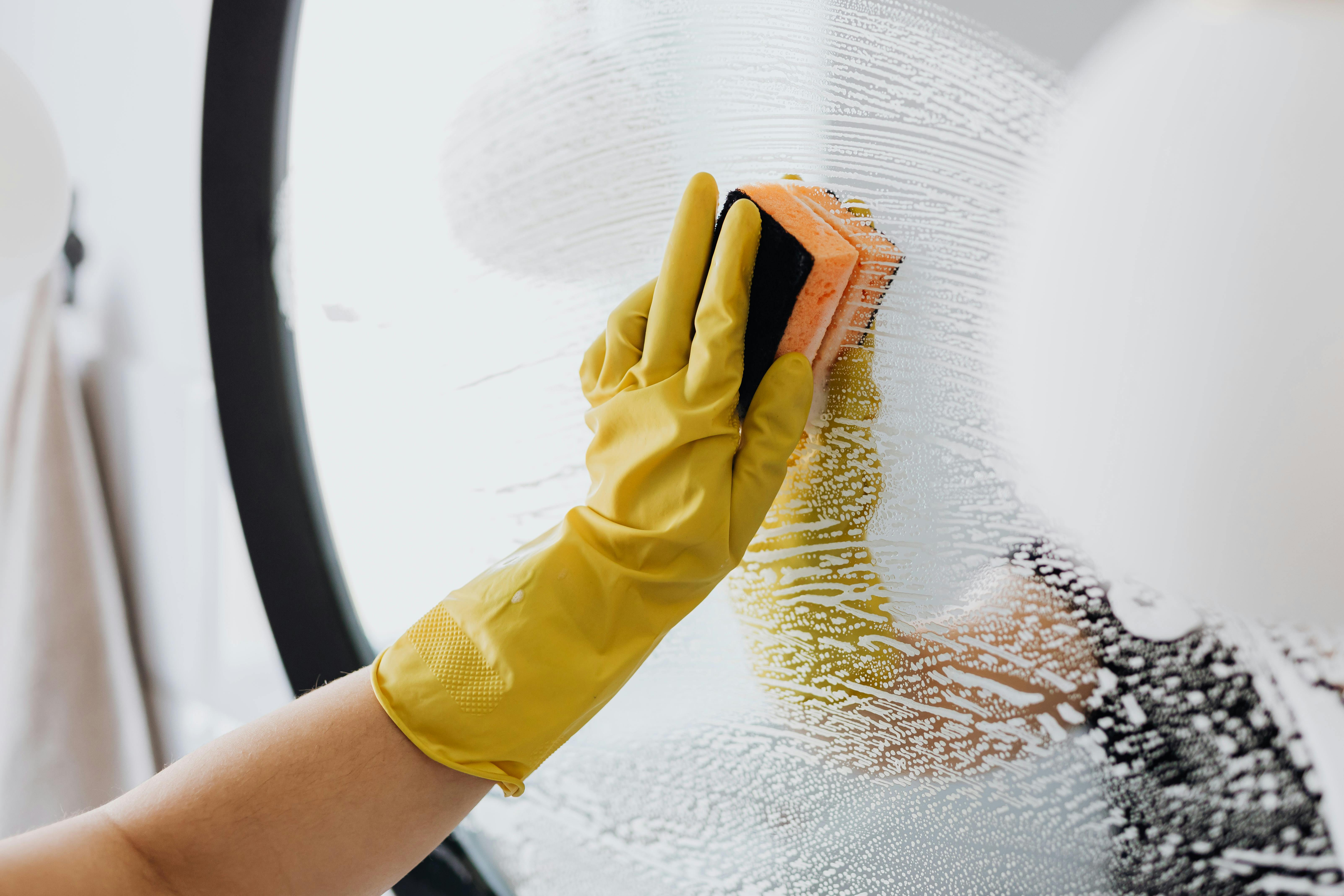Chlorine is often added to drinking water to disinfect it and make it safe for consumption. Unfortunately, chlorine can also cause unpleasant smells and tastes in water. Distilled water is a type of water that has been processed to remove impurities and contaminants, including chlorine. In this article, we will discuss whether distilled water effectively removes chlorine from drinking water.Distilled water is water that has been boiled to create steam and then cooled to condense the steam back into water. The result is pure, clean water free from any minerals, contaminants and pollutants.
Does Distilled Water Remove Chlorine?
Yes, distilled water can remove chlorine from water. Distillation is a process where water is heated up to its boiling point and the steam that is produced is collected in a separate container. As the steam cools down, it condenses and forms distilled water which does not contain any of the substances that were present in the original water. Chlorine is one of those substances that can be removed from the water through distillation.
Distilled water is a great way to remove chlorine from drinking and cooking water because it does not contain any of the chemicals or contaminants found in tap or well water. The process of distilling also removes other impurities such as heavy metals, bacteria, and other harmful components from the original source of drinking or cooking water.
In addition to removing chlorine, distillation also removes other volatile organic compounds (VOCs) such as pesticides and industrial solvents which are commonly found in drinking and cooking waters. These compounds are known to cause health problems if ingested over long periods of time so it’s important to make sure they are removed before consuming any type of drinking or cooking water.
What Is Chlorine?
Chlorine is a chemical element that is found in nature and has many uses. It is a greenish-yellow gas with a strong, unpleasant odor. Chlorine has the atomic number 17 and symbol Cl on the periodic table of elements. It is highly reactive, meaning it readily combines with other elements to form compounds.
Chlorine has been used for centuries to purify drinking water because it kills bacteria and other harmful organisms. In addition, chlorine can be used to disinfect swimming pools and to treat wastewater. It is also used in the production of plastics, pharmaceuticals, and cleaning products.
In its elemental form, chlorine is toxic and can be dangerous if inhaled or ingested in large quantities. However, when handled properly, it can be very beneficial for public health and safety purposes. Chlorine compounds are also found in our environment naturally as part of seawater or soil material.
Overall, chlorine is an important element that has a wide range of applications in our everyday lives. Its ability to kill bacteria makes it an essential tool for keeping us safe from disease-causing organisms that could
Removing Chlorine From Drinking Water
Chlorine is a chemical often added to public water supplies to kill bacteria and other microbes that can cause disease. While it is an effective disinfectant, chlorine can make water taste and smell unpleasant, and it may also have other health impacts. Fortunately, there are several ways to remove chlorine from drinking water.
One way to remove chlorine is by using an activated carbon filter. This type of filter works by passing the water through a special type of charcoal which absorbs the chlorine molecules from the water. It is an effective and relatively inexpensive way to reduce chlorine levels in drinking water.
Another option for removing chlorine from drinking water is reverse osmosis filtration. This process passes the water through a semipermeable membrane which traps pollutants including chlorine molecules in the filter while allowing clean, filtered water to pass through. Reverse osmosis filters are more expensive than activated carbon filters, but they can be used for a variety of applications beyond just removing chlorine from drinking water.
Finally, ultraviolet (UV) light can also be used to remove chlorine from drinking water. UV light kills microorganisms by breaking down their
Why Is It Important To Remove Chlorine From Drinking Water?
Chlorine has long been used as a disinfectant in drinking water to protect against waterborne illnesses. While chlorine is effective at killing pathogens, it can also have adverse health effects of its own. Long-term exposure to chlorine can cause damage to the cardiovascular system, reproductive system and immune system. In addition, chlorine in drinking water can produce undesirable tastes and odors that make it unpleasant to drink. Removing chlorine from drinking water is important for protecting human health and providing a pleasant-tasting source of hydration.
Chlorine reacts with organic matter in the water to form compounds known as disinfection byproducts (DBPs). These compounds can be more harmful than the chlorine itself, potentially leading to cancer in those exposed to high levels over a long period of time. DBPs are particularly dangerous for infants and young children whose developing systems are especially vulnerable. Removing chlorine from drinking water is an important way of reducing exposure to these potential carcinogens.
In addition to potential health risks, chlorine can also have an effect on the taste and odor of drinking water. Chlorine has a

Distilled Water vs Other Methods of Removing Chlorine From Water
Distilled water is the process of boiling water and collecting the steam that is produced. This steam is condensed back into liquid form and is free from most contaminants, including chlorine. Distilled water is, therefore, one of the most effective methods for removing chlorine from drinking water. It also has the added benefit of being easy to obtain and affordable compared to other treatments.
Alternatively, reverse osmosis is another popular method for removing chlorine from drinking water. This process involves pushing water through a semi-permeable membrane which traps contaminants on one side of the membrane and allows clean water to pass through on the other side. Reverse osmosis systems require regular maintenance and can be expensive to buy and install, but they are highly effective at removing chlorine from drinking water.
Finally, activated carbon filters are a cost-effective option for removing chlorine from drinking water. These filters use activated charcoal which binds to chlorine molecules in the water and captures them, thus making it safe to drink. They are easy to install, require little maintenance, and can last for
Benefits of Removing Chlorine From Drinking Water With Distilled Water
The removal of chlorine from drinking water with distilled water has numerous benefits. One of the most important benefits is that it eliminates or reduces the risk of consuming cancer-causing compounds found in drinking water. When chlorine is added to water, it forms a class of compounds called trihalomethanes (THMs), which are known to be carcinogenic when ingested. By removing chlorine from drinking water with distilled water, these compounds are eliminated and the risk of ingesting them is drastically reduced.
Another benefit of removing chlorine from drinking water with distilled water is that it can reduce the presence of other contaminants, such as lead and copper. These metals can leach into drinking water from old plumbing systems, and their presence can pose serious health risks if ingested. By removing chlorine from the drinking supply with distilled water, these contaminants are also eliminated or reduced.
Finally, removing chlorine from drinking water with distilled water can greatly improve its taste and smell. Chlorine has a distinct smell and taste that many people find unpleasant, but this can be easily
Are There Any Disadvantages To Removing Chlorine With Distilled Water?
Removing chlorine from tap water with distilled water can be beneficial for those who are sensitive to chlorine, or those who are using the water to make food or drinks. However, there are some potential drawbacks to using distilled water for this purpose.
One disadvantage is that distilled water does not contain any minerals, which are essential for maintaining a healthy body. Therefore, if you use distilled water exclusively, you may need to supplement your diet with additional vitamins and minerals.
Another disadvantage is that distilled water has a neutral pH level, which means it may not be suitable for certain types of plants or fish. Additionally, the lack of minerals in the water can affect the taste of food and drinks made with it.
Finally, removing chlorine from tap water with distilled water can be expensive since it requires purchasing or renting a distillation system and then buying bottled distilled water from a store. While this cost may be worth it for some people, others may find it too costly and opt for another method of removing chlorine from their drinking water.
In conclusion, while

Conclusion
The research into whether or not distilled water removes chlorine has been inconclusive. While some studies have shown that distilled water may be able to reduce the amount of chlorine in the water, other studies have shown that it may not be effective in removing chlorine at all. In addition, there are still questions about the effects of long-term use of distilled water on health.
At this time, it seems that more research is needed in order to determine if distilled water can reduce the amount of chlorine in drinking water and if it’s safe for long-term use. Until further research is conducted, it is best to use caution when using distilled water for drinking and cooking purposes.
Furthermore, it is important to remember that there are other ways to reduce the amount of chlorine in your drinking water. Installing a filter or purifier can help reduce the levels of chlorine in your drinking water and make it safer for you and your family.

